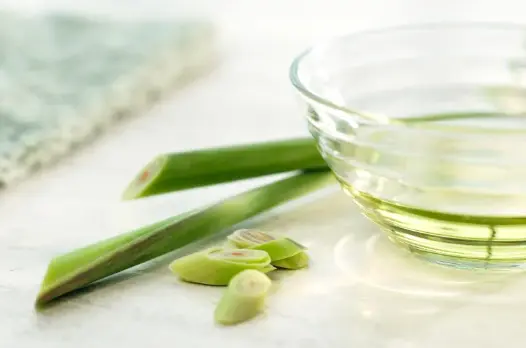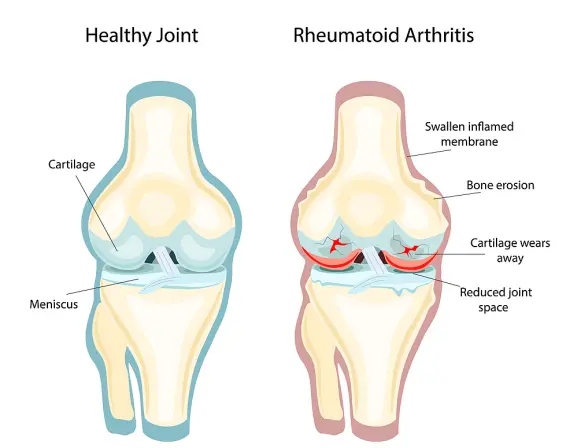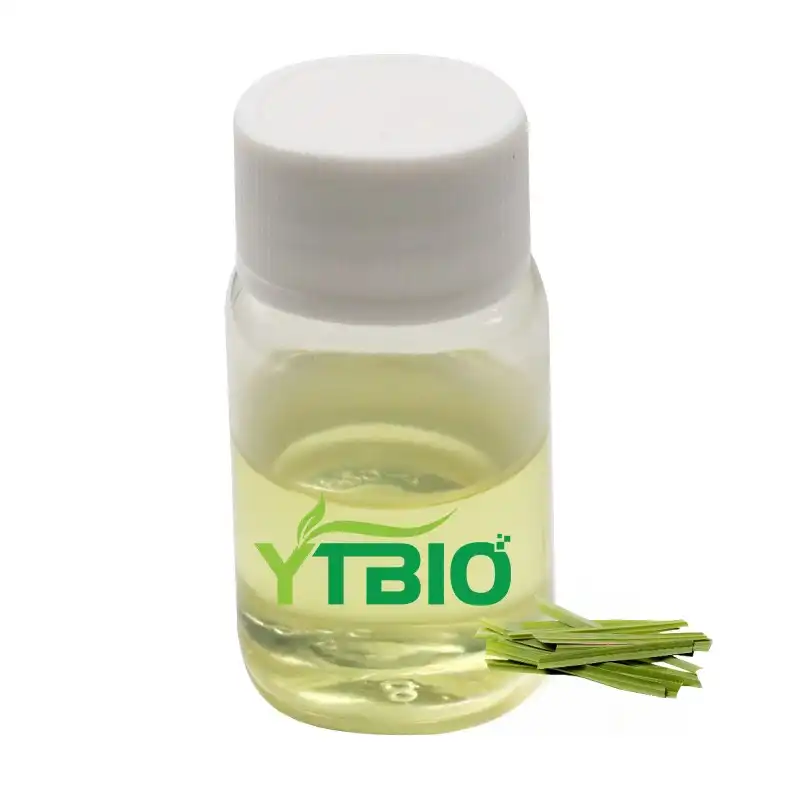Lemon Grass Extract Oil
Source: Lemongrass
Assay:D-pinene 90%
Appearance:Yellow-green to light yellow liquid
Application: Food,Comestic
Storage condition: Cool Dry Place
Shipping Speed: 3-5 Days
Payment: T/T, VISA, XTransfer, Alipay...
Certificates:cGMP,ISO22000,ISO9001,EU&NOP Organic Certificate,Kosher,BRC,Halal,FSSC22000
- Fast Delievery
- Quality Assurance
- 24/7 Customer Service
Product Introduction
Do You Know About Lemon Grass Extract Oil?
Lemon Grass Extract Oil is steam-extracted from fresh or semi-dried lemongrass leaves. High-quality lemongrass essential oil can soothe the digestive tract, relieve stomach discomfort, deodorize, repel insects, and heal acne. Known as a connective tissue specialist, it is particularly helpful for sprained tendons and tendons. Because of its purifying and conditioning properties, lemongrass is often used in skincare products. Its strong, herbal aroma can also help focus and promote positive thinking.

Lemon Grass Extract Oil has a sweet lemon and herbal aroma. It is miscible in benzyl benzoate, diethyl phthalate, vegetable oils, and propylene glycol, but insoluble in glycerin and water. East Indian varieties dissolve readily in ethanol, while West Indian varieties can produce turbidity. It can be partially destroyed under alkaline conditions and can polymerize with inorganic acids, but is stable to weak organic acids.
Lemongrass, Latin name: Cymbopogon flexuosus, is a perennial, densely bushed, fragrant herb with thick, sturdy stems up to 2 meters tall, covered with a white waxy powder beneath the nodes. The leaves, when rubbed, have a citrus aroma. Also known as lemongrass, honey bee grass, citronella, and lemongrass, it is commonly used in Asian cuisine. Lemongrass is native to India and also grows in other tropical regions such as Brazil, the West Indies, Sri Lanka, and China. Lemongrass is widely enjoyed in India and has been used for centuries.
YTBIO: Lemon Grass Extract Oil Supplier

What Are The Main Benefits Of Lemon Grass Extract Oil?
The biological activities of Lemon Grass Extract Oil have garnered widespread attention.
Research has shown that lemongrass extract and essential oil possess antibacterial, antidiarrheal, antiseptic, insecticidal, analgesic, larvicidal, anti-inflammatory, antihypertensive, anti-obesity, antioxidant, hematologic, anti-rheumatic, anti-mutagenic, and cardioprotective properties. These biological activities are attributed to the individual and synergistic effects of various lemongrass essential oil components. Lemongrass essential oil offers a promising alternative to synthetic drugs due to its affordability, natural origin, and biocompatibility. Lemongrass essential oil also exhibits antioxidant activity. Research indicates that its antioxidant activity is primarily due to the presence of terpenoids, which act as oxidative chain terminators.
Mood Relief: Lemon Grass Extract Oil can purify and uplift your mood, relieving stress and anxiety.
Antibacterial and Anti-inflammatory: Effectively inhibits the growth of bacteria, fungi, and viruses, preventing and treating infections.
Insect Repellent: Effectively repels mosquitoes and other pests.
Digestion Enhancer: Stimulates digestive juices, relieving bloating, stomach aches, and indigestion.
Pain Relief: Promotes blood circulation and relaxes muscles, relieving muscle pain, arthritis, and sprains.
Improves Skin Health: Treats acne, eczema, and fungal infections, and reduces skin inflammation.
Relieves Stress and Anxiety: The aroma of Lemon grass Extract Oil has a relaxing and soothing effect, helping to alleviate emotional distress.
How To Use Lemon Grass Extract Oil?
1. Dilute Lemon grass Extract Oil at a ratio of 1 drop to 1 ml of water and spray it around your home, clothing, shoes, socks, or pets to clean, repel insects, disinfect, and improve odor.



2. Mix 3 drops of lemon grass essential oil, 3 drops of bergamot essential oil, and 4 drops of lavender essential oil with one dose of shampoo for long hair or two doses of shampoo for short hair. Use this to shampoo your hair for a softer, softer look.
3. Mix with lavender essential oil, geranium essential oil, eucalyptus essential oil, and other essential oils and spray it into the air to repel mosquitoes.
4. Soothe Joints and Muscles: Dilute it 1:1 with a carrier oil and massage into your body to relieve joint pain and muscle sprains.
5. Soothe Post-Workout Revitalization: Dilute and massage your legs after a long run to reduce lactic acid buildup and revitalize.
6. Improve Scalp Health: Add it to shampoo to improve dandruff.
7.Anti-mosquito and insect repellent: Dilute the Lemon grass Extract Oil and apply or spray it on the skin before going out. It can be used as a natural anti-mosquito and insect repellent.
Lemon Grass Extract Oil For Joint Pain
Arthritis is an inflammatory disease characterized by joint pain, swelling, and limited mobility. The two most common types are osteoarthritis (OA) and rheumatoid arthritis (RA). OA is primarily caused by the long-term wear and tear of joint cartilage and is more common in people over 50 years old. It often occurs in weight-bearing joints such as the knees and hips, and presents with symptoms such as pain during movement and morning stiffness. Its onset is closely linked to aging, obesity, joint injuries, and genetic factors.
Rheumatoid arthritis is an autoimmune disease in which the patient's immune system mistakenly attacks the synovial membrane of the joints, leading to chronic inflammation that can affect multiple joints and even other organs. This disease, which is more common in people aged 30-50, is characterized by symmetrical joint swelling and pain, morning stiffness lasting more than 30 minutes, and may be accompanied by systemic symptoms such as fatigue and a low-grade fever. Its pathogenesis is complex and is linked to genetic, environmental, and immune system abnormalities.

Although these two types of arthritis present differently, both are associated with risk factors such as age and genetics. While osteoarthritis primarily causes localized changes due to mechanical wear and tear, rheumatoid arthritis is a systemic autoimmune disease. Early diagnosis and appropriate treatment are crucial for controlling disease progression and maintaining joint function.
With the increasing use of botanicals and dietary supplements, research on plant extracts for treating arthritis is growing.
In recent years, some studies have explored the anti-arthritic potential of plant species and their extracts, including the anti-arthritic properties of lemongrass extract oil. Lemongrass, which grows in tropical and temperate regions, is the source of lemon grass essential oil. In traditional medicine, lemongrass is used to treat fever, stomach problems, and other discomforts. In some regions, lemongrass is also known as "fever grass" for its fever-reducing properties, and its leaves are used to make "fever tea." Its pharmacological and antimicrobial properties can also be used for other purposes, such as arthritis and other inflammatory diseases.
Lemon grass extract oil has anti-inflammatory activity and can alleviate the symptoms of rheumatoid arthritis. A 2017 study investigated the effects of lemongrass essential oil on 30 patients with rheumatoid arthritis aged 35 to 70. Each participant received 3 mg of lemongrass essential oil from researchers for 30 consecutive days, with the final results showing a reduction in discomfort. Lemon grass essential oil has a variety of uses, including aromatherapy, ailment relief, and cosmetic. Diluted essential oil can be used for massage, and studies have shown that topical application of diluted lemongrass extract oil can relieve headaches and arthritis pain. In animal models of arthritis, citral reduces nociceptive impulses in the spinal cord, thereby exerting an antinociceptive effect.
Citral exerts analgesic effects in arthritis through neurochemical processes. Complete Freund's adjuvant (CFA)-induced arthritis inhibits spinal serotonin metabolism (5-HIAA) in the lumbar dorsal horn of the spinal cord opposite the injured joint by reducing levels of the major 5-HT (5-hydroxyindole-3-acetic acid) metabolite in the spinal cord. Furthermore, the 5-HT-regulated intracellular protein glycogen synthase kinase 3 (GSK3) was phosphorylated less frequently, while stress-activated protein kinase (SAPK)/jun N-terminal kinase (JNK) was phosphorylated more frequently. Systemically, arthritis increases plasma superoxide dismutase levels, indicating increased levels of reactive oxygen species (ROS) in the blood.
These chemical changes, combined with other variables, can enhance central sensitization and prolong arthritis pain. Long-term use of citral can reduce plasma ROS, increase spinal cord 5-HT, control spinal cord 5-HT metabolism (i.e., 5-HIAA levels), inhibit CFA-induced increases in spinal cord GSK3 phosphorylation, and reduce CFA-induced increases in SAPK/JNK phosphorylation. Studies have shown that the analgesic effect of citral is achieved through anti-nociceptive mechanisms, including increased 5-HT signaling in the spinal cord, decreased spinal cord SAPK/JNK phosphorylation, and reduced systemic oxidative stress.
References
Adhikary K, Banerjee P, Barman S, et al. Nutritional Aspects, Chemistry Profile, Extraction Techniques of Lemongrass Essential Oil and It's Physiological Benefits[J]. J Am Nutr Assoc, 2024, 43(2):183-200.
YTBIO has own factory and R&D team, dedicated to providing you with high-quality Lemon grass extract oil and services. If you have any questions or needs, please contact us and we will respond to you as soon as possible.
_1737093401309.png)

